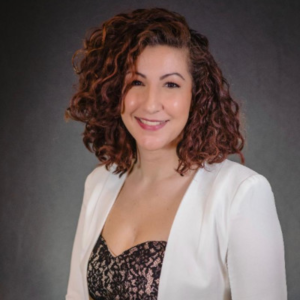Introduction to Change-Making in the Workplace Series
In April, Tufts Career Center’s Career Fellows Ismenia and Jesse moderated a panel on Change-Making in the Workplace. We will be breaking down that conversation into smaller blog posts, but if you are interested in watching the whole panel, you can do so here!
Here is the premise for the discussion: We continue to hear stories of underrepresentation and inequality in and around the workplace. How are companies responding to these longstanding injustices in their own workplaces, society and beyond? Learn about what it means to be a changemaker in the workplace and gain insight into what sort of influence you can have.
Panelists Sharing Thoughts, Insights, and Experiences
- Reema Elghossain, Vice President at 4A’s Foundation
- Phuong Ta ’16, Executive Search Consultant at Isaacson, Miller
- Gabrielle (Gabby) Thomas ’13, Diversity, Inclusion, & Belonging Program Manager at HubSpot
Breaking Free of Imposter Syndrome
What advice do you have for challenging imposter syndrome and finding the right support communities? How can we best frame our mindsets to trust our own narratives? How can we prevent burnout from imposter syndrome?
 Gabby: Therapy has helped, but basically, I will question myself in a good way the way, that my therapist would. After doing this [work] for a couple of years, and it is always okay to have the feeling at first, that is not wrong. It is what you do after, and so I usually check myself, like Gabby what is really happening here? You usually do this this, is this right? It is something you can just kind of push through with work, so highly recommend therapy for everyone, but that is usually how I tackle it. But, still recovering from it even as of this morning.
Gabby: Therapy has helped, but basically, I will question myself in a good way the way, that my therapist would. After doing this [work] for a couple of years, and it is always okay to have the feeling at first, that is not wrong. It is what you do after, and so I usually check myself, like Gabby what is really happening here? You usually do this this, is this right? It is something you can just kind of push through with work, so highly recommend therapy for everyone, but that is usually how I tackle it. But, still recovering from it even as of this morning.
In terms of self-care and burnout, I was talking about this recently and I think I have a I have a different obstacle that I am trying to get over than others. I usually choose myself first. I do not feel like I have an issue with what people perceive as a self-care. I am usually like I know I do not want to do that because I just do not want to. I want to stay here and watch tv and I will do that. For me, what true self-care needs to be is when I need to tell myself no, because those actions can sometimes lead me to avoidance. I need to say no, you actually need to sit here and keep doing work or whatever it is. Sometimes I have to actually tell myself no, which is how I see self-care. I know that is not usually the case for a lot of other people. For example, I will not miss a meal. I am not going to work through lunch, I am just not going to do it because my body tells me I need to eat so I am going to stop. So, for me, telling myself no at the times that I need that push.
 Phuong: I recently read a Harvard Business Review article, you might have seen it circulating around, “Stop telling women that they have imposter syndrome.” Recognize when it is you and when it is the environment you are in. I know I do not identify as a woman, but still find the article really great, I highly recommend. Also recognize when your inner critics are being helpful or being abusive. That is also advice I learned recently about how to not be our own worst critic and knowing when self-awareness is good for our own development and our growth, but also whether it is just keeping us down. And, again, recognize the environment that we are in and do not just take the blame for it.
Phuong: I recently read a Harvard Business Review article, you might have seen it circulating around, “Stop telling women that they have imposter syndrome.” Recognize when it is you and when it is the environment you are in. I know I do not identify as a woman, but still find the article really great, I highly recommend. Also recognize when your inner critics are being helpful or being abusive. That is also advice I learned recently about how to not be our own worst critic and knowing when self-awareness is good for our own development and our growth, but also whether it is just keeping us down. And, again, recognize the environment that we are in and do not just take the blame for it.
For self-care, I think a lot of us still been struggling with transitioning to doing everything in the virtual world. I mean I do not mind not having my long commute in on the train every day. But also, being at home and working for the past year from home made me realize I do work longer hours and I have to take a step back and tell myself that if this is who I want to be right now, that if this who is who I want to be for the next year, it is not sustainable. Sometimes it is just taking time for myself to take a walk before I get to work or after. I still think that is critical and transformational to just my own well-being, to make time for yourself in the world that will tell you to constantly be plugged in. That is so tempting to do right now when work at home and home is work, and I think the same with school as well. So, making time for yourself always and I like what Gabby said, I do not like to use my lunch time for anything else. I use my lunch time for my lunch because I need that for my sanity.
 Reema: Phuong made a good point too, because there’s abusive places that bring out feelings of imposters syndrome. That is a really valid point and it got created from somewhere, so I definitely need to check that article.
Reema: Phuong made a good point too, because there’s abusive places that bring out feelings of imposters syndrome. That is a really valid point and it got created from somewhere, so I definitely need to check that article.
I second therapy. And similar to therapy, it is having people that you know can help you. Imposter syndrome is two parts; it is how you feel and then it is like the patterns that you create based on those feelings too. If I feel like a superhero and I want to do everything, then some of the patterns I create are I take on everything and I take on too much and then I burn out. Then I’m crashing for months until I have to recover and every year I get older, the harder it gets. I started building those patterns and I started realizing what is actually impacting me, like yes, I can go to a million miles per hour and accomplish a lot of great things, but then I crash for a couple months and you won’t even see me. That is not healthy, that is depression, that leads to anxiety and it is a struggle.
So, I am learning every day still. I am 38 years old trying to change the patterns that I have created due to the imposter syndrome and that is not easy. I do not know if I am even answering the question but thank you for letting me be vulnerable. Imposter syndrome is a struggle, and it is something that you must check yourself both on why am I procrastinating on this or why did I just say yes to something I am not comfortable with or why am I not asking anyone for help because I feel like I need to do it myself or if I’m not figuring it out right away, I’m not good at it. It is all these random thoughts, and it is silencing that voice and then trying to realize how that is impacting me and what i can do for both of those things. I do a lot of meditation and affirmation meditation, so I wake up in the morning and I say to myself “I am great” and even if I do not feel like it, it does change my energy. So that helps as well too.
For self-care, I am still working on the lunch thing so maybe you guys can give me some tips. What we are talking about are boundaries. I totally agree when COVID hit I started realizing like wow, this is too much. I started realizing that I have been a workaholic my whole life and so I am starting to decide what are boundaries for me too. I started changing my mindset and taking a little bit more accountability because I can answer emails all weekend, but nobody is telling me to do that. I am doing that because I think I need to do that. I had to just create boundaries and expectations of myself that I am not going to work on the weekends, even if somebody wants me to, or I am not going to work this many hours. The lunch thing I am still struggling with, but I am trying to get to that point where and I do not work during lunch. The first month that I did not answer emails on weekends, I was having withdrawal symptoms, it was a struggle. Now you will never catch me answering an email on a weekend, that is not happening, but that takes a commitment to myself.
Self-care can be a lot of different things, but it is what is your commitment to yourself? I needed boundaries for me, I needed to be able to tell my team I’m not having meetings on Fridays so don’t schedule them and no one died, and everything was okay. The emails get answered and so just giving myself grace and not feeling like I am doing something wrong if I am not working. That has been a big lesson for me.

